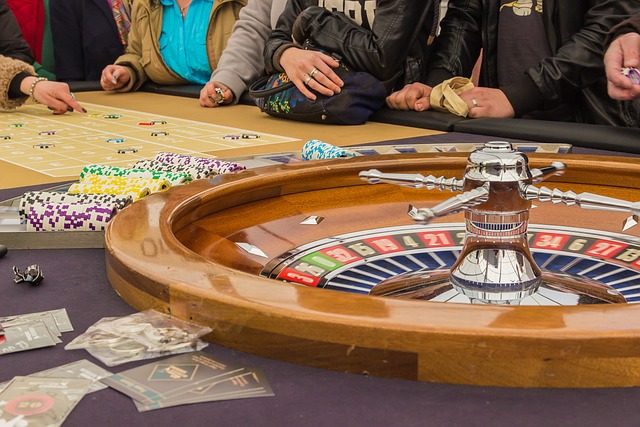Roulette is a captivating casino game combining simplicity with complex odds. Players bet on numbers, with straight bets offering highest payouts but higher risk. Strategies like Martingale and Fibonacci systems exist, though their effectiveness is debated due to roulette's randomness. Key to successful play: understand probabilities, manage bankroll, avoid chasing losses, and embrace luck.
Roulette, a captivating casino game, combines chance and strategy. Understanding its basics is crucial before employing various roulette strategies. This article guides you through the fundamental knowledge of roulette, from the game’s mechanics to its odds. We explore popular strategies, dissecting what works and what doesn’t, and offer advanced techniques for informed betting decisions. Get ready to transform your roulette experience with these insights.
- Understanding Roulette Basics: The Game and Its Odds
- Popular Roulette Strategies: What Works and What Doesn't
- Advanced Techniques and Tips for Better Betting
Understanding Roulette Basics: The Game and Its Odds

Roulette is a classic casino game that has captivated players for centuries with its simple yet captivating mechanics. At its core, it’s a game of chance where players bet on a single number or a range of numbers on a spinning wheel. The wheel is divided into 37 segments (in European roulette) or 38 (in American roulette), each numbered and colored either red or black. A small ball is released, and as the wheel spins, it eventually comes to rest in one of these pockets.
Understanding the odds is crucial when it comes to playing Roulette. Each bet has a specific probability of winning or losing, depending on its type. Straight bets, where you predict a single number, offer the highest payout but are also the riskiest. Meanwhile, bets like splits, streets, and corners provide slightly lower returns but with increased chances of success. Knowing these odds is essential for players to make informed decisions and manage their bankroll effectively in this thrilling game of chance.
Popular Roulette Strategies: What Works and What Doesn't

In the world of roulette, players have devised numerous strategies, each claiming to offer an edge over the wheel. However, it’s important to note that roulette is a game of chance and probability, making it challenging to guarantee wins. Among the most popular Roulette strategies are those that aim to manage bankrolls and bet patterns. One such approach is the Martingale System, which suggests doubling bets after each loss until a win occurs. This strategy can be enticing due to its potential for high payouts but comes with significant risks, especially in the long run. Players must be cautious as this method could lead to substantial financial losses if an extended losing streak occurs.
Another widely discussed strategy is the Fibonacci System, which involves placing bets based on a sequence of numbers from the Fibonacci series. This method encourages players to bet on multiple numbers at once, adjusting stakes after each spin. While it promotes responsible bankroll management, its effectiveness is debated. Some believe that the Fibonacci System provides a slight advantage due to its mathematical foundation, while others argue that roulette’s random nature renders such strategies ineffective in the long term. Ultimately, what works for one player might not work for another, and it’s crucial to understand the house edge and play within one’s means.
Advanced Techniques and Tips for Better Betting

In the world of roulette, advanced techniques can transform an average player into a strategic one. One such technique is the Martingale System, which involves doubling your bet after each loss until you win. While risky, it offers potential for significant gains. Another approach is the Fibonacci Strategy, where you bet based on the sequence of Fibonacci numbers, adding up previous wins and losses. This method provides a more balanced risk-reward ratio compared to Martingale.
For better betting, consider implementing a budget and sticking to it. Avoid chasing losses, as this can lead to bigger mistakes. Instead, focus on understanding probabilities and the house edge. Know when to walk away and cut your losses short. Additionally, don’t be swayed by hot or cold numbers—each spin is independent in roulette. Always play within your means and remember that luck plays a significant role in the game.
Roulette, a captivating game of chance and skill, offers a unique blend of excitement and strategy. By understanding the basics, exploring popular strategies, and mastering advanced techniques, players can enhance their experience and make informed bets. While no single strategy guarantees success, combining knowledge with responsible gameplay ensures a more enjoyable and potentially rewarding journey at the roulette table. Whether you’re a novice or an experienced player, these insights provide a solid foundation to navigate the world of roulette.






